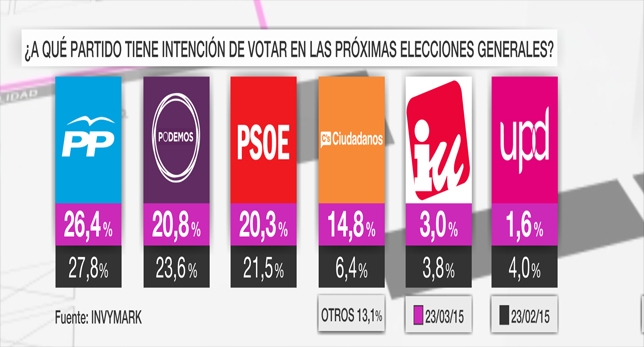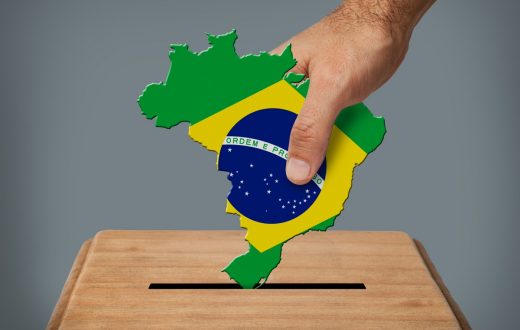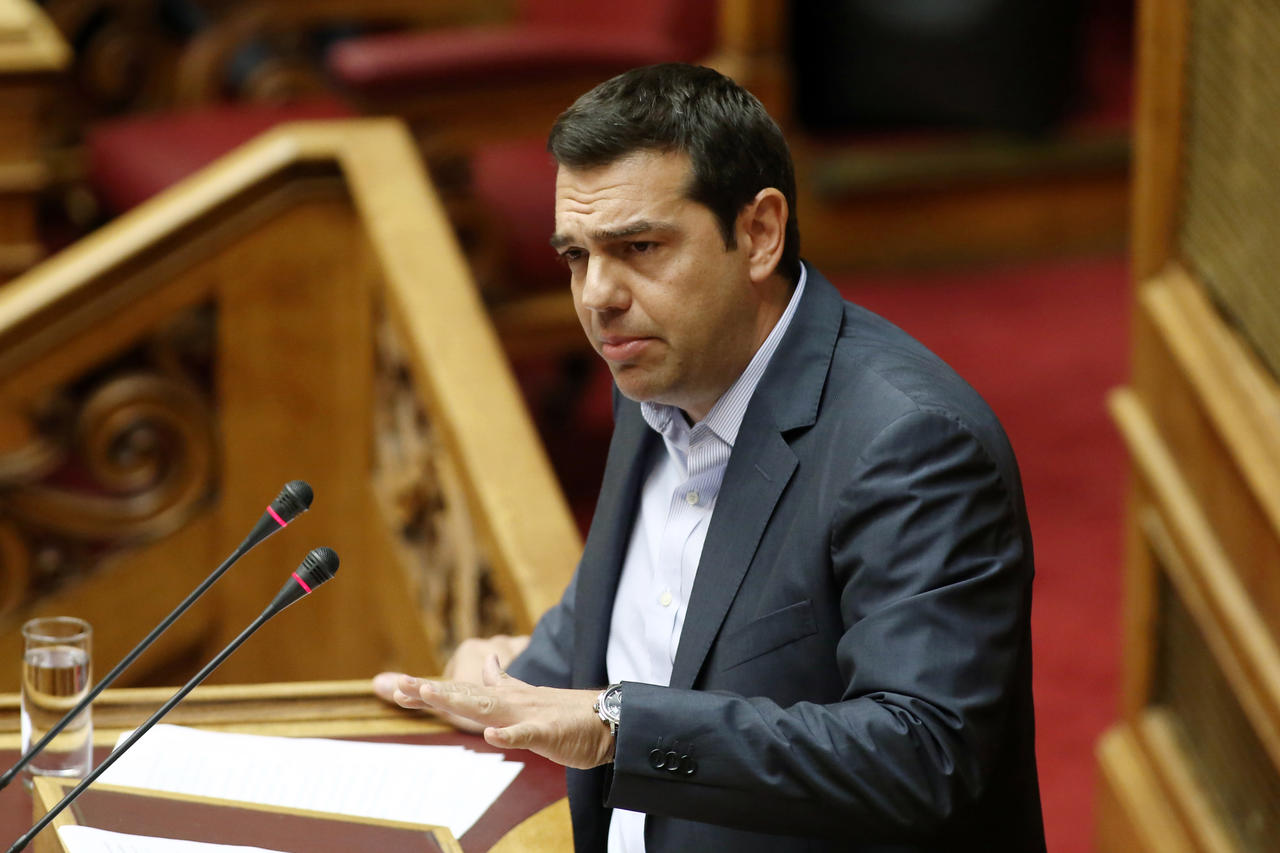Spanish Elections are making their appearance in the near horizon. This year, the Spanish people might be faced to meaningful unexpected and never-seen-before outcomes. This year has given place to the rise of new players in the political game and to modern creative and alternative parties to the mostly traditional bi-party p olitical scenario that characterized the Spanish government until present—the Popular Party (PP) and the Socialist Labor Party (PSOE).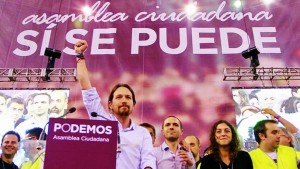
We refer here to the two new popular parties who have recently made their ways towards a more significant presence in the Medias, a closer connection to the public, the issuing of new promising promises and a rise amongst the conservative parties in Spain, highlighted throughout the polls ahead of the mid-December elections.
These are the CIUDADANOS and the PODEMOS parties, two young ideologies lead by ambitious figures—Albert Rivera and Pablo Iglesias respectively—ready to come to the front and, if not becoming Spain’s leaders, at least catching a piece of the cake that is being raffled amongst the candidates of the new coalition government to be formed in December.
See Polls made by EL MUNDO journal – Elecciones Generales – Sondeos
What is it that has given the two the opportunity to stand out in the last year?
Being each party differently placed in the political spectrum, the one in the center-right and the second to the left, the most highlighted aspect to be noticed is the name given to these two parties. Indeed, as much as the traditional PP and PSOE possess titles that make reference to the society, these two new parties have rather chosen a more quotidian name to make such a reference, a title accessible to all’s understanding, a simple name that represents nothing but a new, fresh, popular character. The name CIUDADANOS means citizens, a common word that attracts everyone who holds a Spanish passport and feels a Spanish national. This gives a feeling of belonging, I am a citizen, and therefore I belong, or, Spain for the Spanish people. The name PODEMOS is more of a “yes, we can” kind of name, which appeals to the slogan of positivism within a lake of problems that Spain currently counters. Just as the American crisis required a motivating slogan in 2008, the European crisis does to. PODEMOS refers to entrepreneurship, initiatives, the saving light after the tunnel, an alternative, motivation, and many more positive adjectives that the Spanish public is so 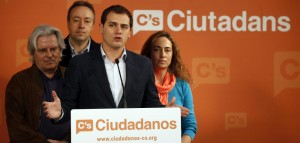 much in need of at the moment.
much in need of at the moment.
Although the name of a party might only seem like a title to give to it, something catchy and with a good sound, in fact it is rather the reflection of the party’s principles, bases, ideas, and is meant to give a hint on what is to be expected from its ideology. In these cases, the parties’ names indeed point to two ideologies which propose quite new and popular ideas, different from the old ones, the ones that have been around ever since the Spanish democracy came along in 1977. When a country finds itself drowned in a number of problems, and when the leading figures don’t seem to be able to avoid the boat from sinking, the people start showing an interest for new solutions to the same problems. These two parties have come along recently in light of the current political, economic and social situation in Spain. The political situations is reflected through the numerous cases of corruption emerging mostly at the provincial and municipal level, the economic refers to the obvious Euro crisis that has been going on for the past seven years and which has affected a high portion of the population, creating more than a 25% of unemployment, and the social aspect is connected to the previous one, which has brought about a significant rate of young people leaving the country seeking for jobs abroad, and therefore creating an important brain drain in the country. In a moment in which the Spanish people find themselves at a desperate moment, and see no positive results coming from the government’s repetitive promises, they claim the need to find solid alternatives. And for it, CIUDADANOS and PODEMOS have appeared with “saving solutions” and “promising results”. They have approached society and reached their hurt feelings to propose the most attractive measures to be taken at the political level. They have created a, maybe placebo, medicine to cure all the country’s problems. One might ask, how come they have such a simple spectrum of solutions, and how come they can promise to apply them, while the current government hasn’t been as smart to find these first? Probably the emotional part is the one that plays a central role amongst the Spanish people at the moment, to the point that it overshadows the logical thinking. These parties have ridiculed the traditional parties, presenting them as incapable of managing the situation, and as lacking control of the panorama.
This has given them the opportunity of offering an alternative to the existing ideologies and political parties. This is the fourth aspect that has allowed these parties to stand out in the political scenario of Spain. That is, CIUDADANOS and PODEMOS are putting out there a clear alternative, avoiding vague policies and expressing a solid base of principles. For example, adapting taxes to the citizen’s revenues which would alleviate the weight on the middle classes, the most affected one by the crisis, request for government workers to declare their assets and monthly payments with public money before, during and after they take their post in order to block the possibility of corruption, making government meetings open to the public in order to increase transparency, including a mailbox to receive anonymous denouncing of corruption cases, the banning of corrupted leaders in their party lists, stopping the government’s plans for privatization of the health system, in education promises on making kindergarten and text books for school free, promises on stopping evictions of debtors with ‘good faith’ with no alternative housing, establishment of a rescue plan to ensure the supply of water, electricity and gas for people in difficult economic situations.
Spain is seeing a repetition of history. Desperate periods have repeatedly requested desperate solutions; often when a country has seen itself in a long-time trouble it has always needed renovated ideas and fresh leading figures to take over the government. This has been the case of the raise of fascism in the aftermath of fist world war, Soviet Lenin after the Bolshevicks revolution, Nasser’s victory in Egypt, the Muslim Brotherhood in Egypt, and later the different governments that derived from the Arab Spring, more recently, the rise of Syriza in Greece, amongst many more examples.
The analysis to be made for these elections should be that old traditional parties have a life-time experience in the political game, with the legal apparatus, and socio-economic constraints, as opposed to the newly created parties, while the young parties might be able to propose new creative ways of working around the country’s obstacles and challenges and might provide the people with new hopes. As of now CIUDADANOS and PODEMOS have gained ground, although they still remain less popular than the two traditional big parties PP and PSOE. This might only mean that new players will gain weight in a possible coalition.

